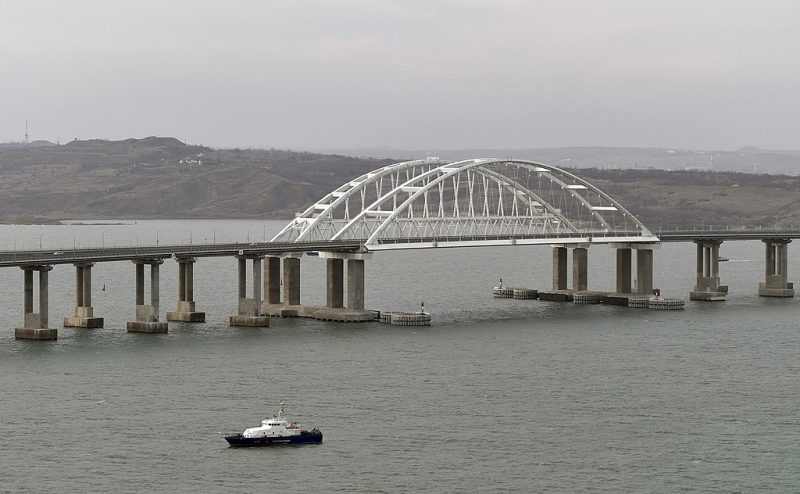In a recent development that has significant implications for international peace and security, the Dutch prosecutor’s office has penalized four Dutch companies and eight individuals for breaching E.U. sanctions on Russia. These entities were found guilty of aiding Moscow in the construction of a bridge to Crimea between 2014 and 2017, a move that has drawn international attention.
“The Crimean Bridge was built partly due to the use of Dutch knowledge and expertise,” the prosecutor’s office stated, highlighting the global interconnectedness in such projects. The relevant companies facilitated the construction of the 19-kilometre-long bridge spanning the Strait of Kerch by supplying machines, machine parts, and other services.
The individuals involved were sentenced to community service, while the companies were fined a total of 160,000 euros (about $232,000 CAD). One company had its illegally obtained benefit of 71,330 euros confiscated, demonstrating the financial consequences of such actions.
The E.U. imposed sanctions on Russia following the annexation of Crimea in 2014 in an attempt to signal its disapproval of Russia’s actions and deter further aggression. By aiding in the construction of the bridge, these companies breached these sanctions, indirectly contributing to a situation that has been a source of tension between Russia and Ukraine and thereby undermining international peace efforts. This case is a stark reminder of the role that economic entities can play in geopolitical conflicts, underscoring how business decisions can have far-reaching political implications.
This case is a call to action for businesses to consider their role in global peacekeeping, serving as a reminder to corporations worldwide about their responsibilities to uphold international law. The guilty ruling is a significant step towards holding entities who fail to uphold those responsibilities accountable for their potential roles in fuelling conflict.
The Organization for World Peace emphasizes peaceful solutions to complex problems. The ruling of the Dutch prosecutor’s office has re-affirmed the power of non-combative sanctions, underscoring the importance of adherence to international peace efforts and demonstrating the power of the O.W.P.’s mission. This case is a warning to other entities considering similar actions, setting a precedent for future cases where companies may be tempted to put profit over peace.
- Mass Killings In Darfur As Sudan’s Civil War Continues - March 16, 2024
- Pakistan Expels Refugees Back To Taliban-Controlled Afghanistan - February 27, 2024
- Prosecutor’s Office Rules Against Dutch Companies For Breaking Russian Sanctions - January 30, 2024


